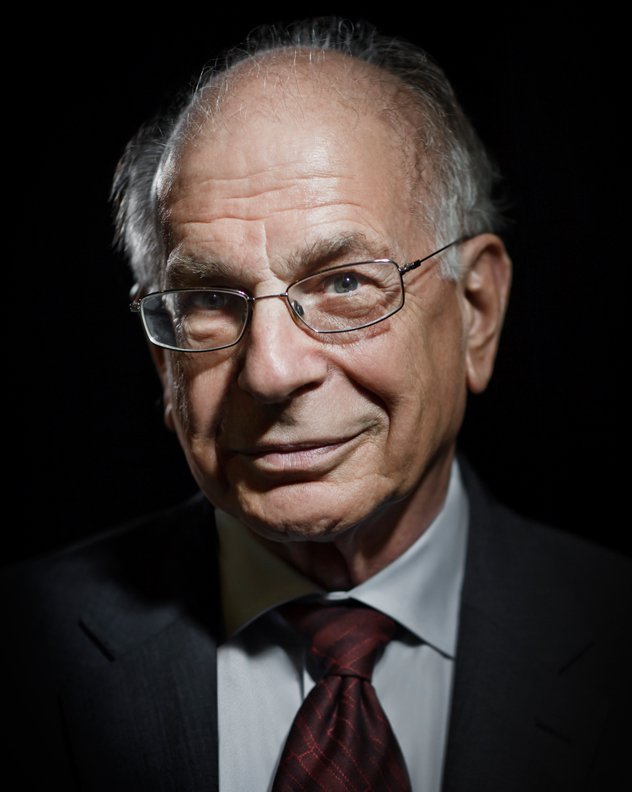"But what is this? A Psychologist who won a Nobel Prize in Economics?" That's it. Daniel Kahneman is his name, and after him came other specialists in the Psychological Sciences in economic affairs.

Daniel Kahneman was born in Tel Aviv during the so-called British Mandate of Palestine with the post-war Ottoman Empire - where it is currently located in the Israeli state - on March 5, 1934. At the age of six, Daniel and his family moved to Paris at the time France was occupied by Nazi Germany in 1940. His father Efraim was captured by the Nazis along with other Franco-Jews, but was released a few weeks later.
Already in 1954, obtained its graduation in Mathematics and in Psychology, by the Hebrew University of Jerusalem. His interest in Psychology came from the Nazi occupation of France, where he suddenly stood face to face with a German soldier. He had been pursuing Daniel for the delay he had had in decorating the star of David in his clothing. Rather than capture him, the angry soldier changed his expression quickly, having been moved and hugged the boy, presented him with a photo of another boy, who was supposed to be his son, and gave Daniel a little money. He left afterwards with the certainty that his mother was always right: "people are, in depth, as complicated as they are interesting", as if it were a message to the son that, deep down, we should give a spark, a second chance to humans, to these boxes of surprise.
In 61, he earned a Ph.D. in Psychology from the University of California at Berkeley, with his thesis based on the Semantic Differential, an assessment scale designed to measure the connotative meaning of objects, events, and concepts, and how individuals are affected and react of the given signifier.
At the Royal Swedish Academy of Sciences, the Bank of Sweden Award for Economic Sciences in Memory of Alfred Nobel of that year was nominated, and winners, as a Psychologist (Daniel Kahneman) and a Neuroeconomist (Vernon Smith). The Award was divided between the two "for introducing the insights of psychological research into economic science, especially with regard to evaluations and decision-making under uncertainty" and "by using laboratory experiments as an instrument of empirical economic analysis, especially in the study of alternative market mechanisms ", respectively.
Kahneman, along with his partner Tversky, also a psychologist, killed in 96, dismantled the idea of economic rationality, work done in 3 phases:
- Experiments have been performed that revealed in the human being unconscious concepts of reasoning that distort the judgment we make of the world around us.
- People who make decisions in unstable conditions do not behave in the way that economic models traditionally predicted. Kahneman and Tversky developed an account of how people make decisions, called Theory of Perspectives, which led Kahneman to the Nobel Prize.
- After the death of his partner, Daniel delved into the study of happiness, in which it is believed that, I believe, happiness can lead to success, not vice versa.
Kahneman has a bestseller called *Fast and Slow *, published in 2011, which covers the three phases described. In it, Homo economicus, the one who makes decisions based only on perfectly rational analyzes that correspond to his interests, is deconstructed. There is reflected Kahneman and Tversky's perception that decision-making is not something that is fully objective.

Our emotions, beliefs and intuitions are as weighty as analysis when making a decision. And these attributes can lead to good or bad decisions. However, we do not want to depend on emotion to make a serious decision that can have an impact on other people's lives.
This is a big problem that we can have, because our mind has two systems: the first is responsible for making decisions quickly and effortlessly, based on intuition and the association of memories; the second is slow and is only activated when we enter a situation that requires concentration. The mind, then, functions like RAM and the hard drive of a computer. Both sides are equally necessary, otherwise we would spend a lot of energy to solve simple problems and issues.
There is a talk of Kahneman that can express well the intersection of Psychological and Economic Sciences. He says that psychology can be very helpful in helping to plan the social experience. When economic reforms fail, the main reason is that any reform generates winners and losers. Losers fight a lot more than potential winners. As a result, the losers must be compensated for any result. Typically the cost of this is high, something the planners did not anticipate.
Therefore, in this context, as well as the formulation of public policies for citizens, Psychology has a space for formulating messages of these policies, so that individuals are aware of the opportunities that are available, and are oriented to make decisions that are of the best interest of all involved. The term mental accounting would fit well in this, as a form of self-control of the decisions we make over our resources, and that we may better consciously use and apply, in order to actually receive something in return for the investment.
"There is a perplexing limitation of our mind: our overconfidence in what we believe we know, and our apparent inability to admit the true extent of our ignorance and the uncertainty of the world in which we live."
Very very very good and informative post. I do like it. Thanks for sharing it my best friend
Posted using Partiko Android
Thanks for the comment!
You are welcome my best friend 😊
Posted using Partiko Android